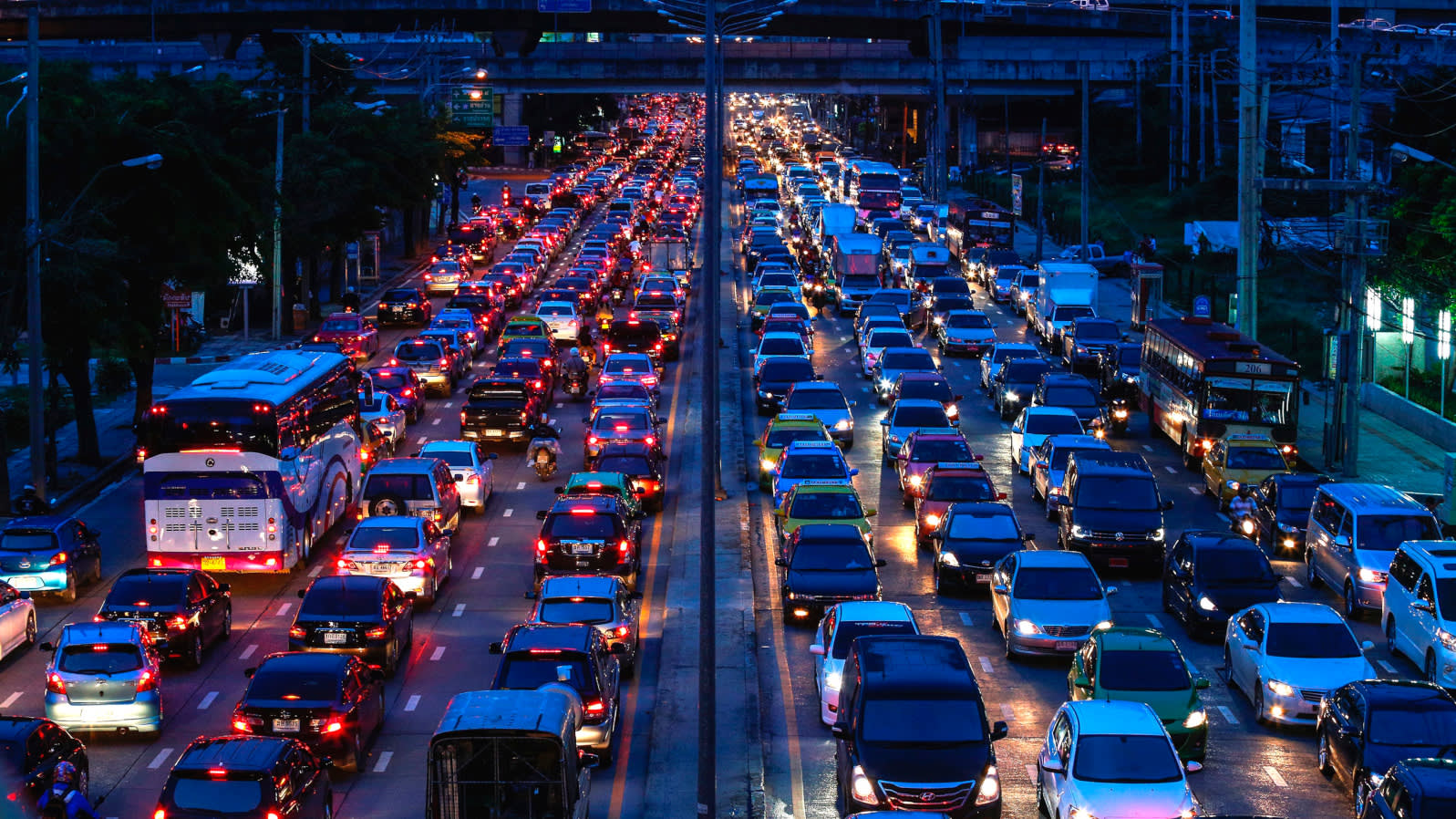
Cars are seen stuck in a traffic jam on Rama IX Road in Bangkok. Easing traffic congestion is one of the most urgent tasks for Asian cities. (Photo: Reuters)
TOKYO -- Japan will help build "smart cities" across Southeast Asia, using artificial intelligence and networked devices to tackle problems like road congestion and energy conservation.
The 10 member states of the Association of Southeast Asian Nations have drawn up a framework to develop environmentally friendly smart cities and have selected 26 locations for the program.
Japanese Prime Minister Shinzo Abe pledged support for the program at an ASEAN summit in November. Tokyo intends to host a meeting with Southeast Asian nation officials as early as October to hammer out details of the cooperation.
Vietnam, for instance, is seeking technical assistance and training to design and run a traffic control system for Hanoi. A control center would direct emergency responses by firefighters, ambulances and police.
Myanmar's second-largest city, Mandalay, also is looking to use data analysis to ease traffic congestion, while Jakarta wants to introduce cashless payment for mass transit. Japan, which has strength in both fields, will provide technology and funding.
Support for Asian smart cities forms part of Japan's effort to provide an alternative to China's Belt and Road infrastructure initiative.
Beijing has mobilized billions of dollars in loans for port and rail projects in developing Asian nations, but Tokyo takes a different approach, touting "quality" infrastructure assistance as a way to help countries build sustainable economic growth.
Beijing also has expressed interest in aiding ASEAN countries' smart city programs.
The urban population in emerging economies, including Southeast Asia, will surpass 4 billion in 2030, up from 3 billion in 2015, the United Nations projects. As cities swell to hold a majority of the population, they face a pressing need to use "internet of things" technology to improve efficiency and reduce energy consumption.
Global spending on information technology for smart cities will reach $135 billion in 2021, growing at an average annual rate of nearly 20%, research company IDC projects.


















